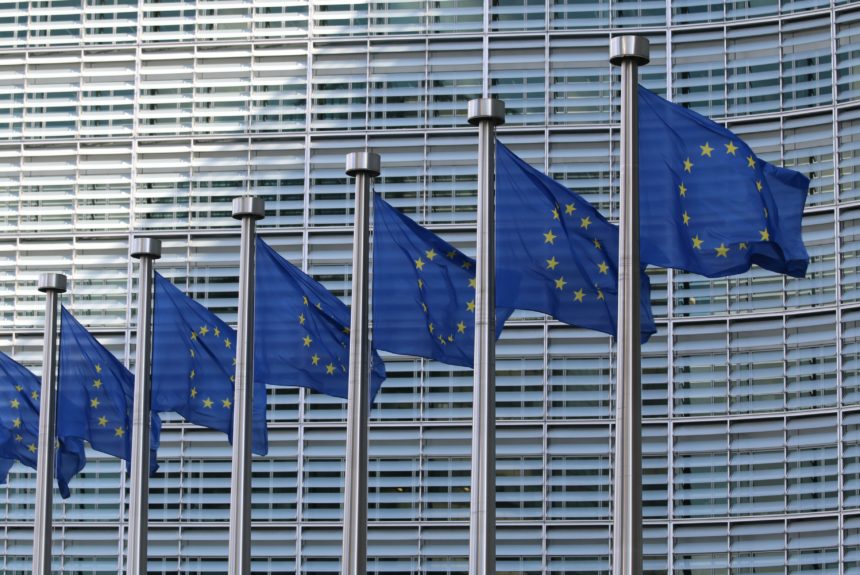Since the start of Ursula von der Leyen’s Presidency of the European Commission, the fight against climate change has taken center stage in Europe. Presented in December 2019, she proclaimed her European Green Deal as “Europe’s man of the moon moment,” which would be implemented over the next few years, ultimately attaining full carbon neutrality on the continent by 2050.
As European countries are still grappling with the threat of the COVID-19 pandemic, the Commission considers the Green Deal program integral, rather than an obstacle, to economic recovery for the European Union. Indeed, last year the Commission called the Green Deal “the EU’s recovery strategy” for a post-COVID world.
>>>READ: Climate Action and Economic Prosperity Must Go Hand in Had
Yet, given Europe’s current energy woes, one might be skeptical of the EU’s approach to climate change. As Andrew Stuttaford recently argued in National Review, European governments have helped create a very avoidable energy crisis, in part by decommissioning carbon-free nuclear plants and creating dependency on Russian natural gas. Just a few days before the New Year, Belgium, which hosts the capital of the European Union in Brussels, committed to phasing out its nuclear energy reactors by 2023.
Unfortunately, doubling down on the European Green Deal in the next year and beyond would fail to remedy this top-down, government-centric approach. The instinctive, bureaucratic reaction in Brussels is to turn to the government to solve every environmental problem, and in doing so risks ignoring the proper role of innovation and free enterprise. Indeed, the Green Deal centers on the belief that centralized decision-making is the primary answer to climate change.
If the energy crisis isn’t evidence enough of these policy failures, we can also learn a lot from the European Union’s track record on the environment. For instance, the EU’s Common Agricultural Policy has led to wasteful overproduction, props up big industrial farms, contributes to higher nitrate pollution in the continent’s waterways, pushes up food costs for consumers, and even squeezes African farmers further into poverty. The Common Fisheries Policy has had similar effects: in 2010, 88% of fish stocks in the EU waters were overfished, with 30% outside of safe biological limits. And let’s not forget the EU’s annual 112 billion euros in fossil fuel subsidies.
Ultimately, Europe’s policy approach to the environment and climate change is still dominated by heavy-handed, top-down mandates from central government. Through perverse incentives, inefficient subsidies, and picking winners and losers, Europe’s energy and environmental policy have fallen victim to special interests and corporate lobbying.
Will European policymakers learn from these lessons? Unlikely. But if they do decide to improve upon their track record, there are alternatives to the heavy-handed approach of the past. Relying on the principles of a dynamic market economy, free trade, and localism can help Europe out of its energy mess, and into a prosperous, clean future.
First, the EU must phase out its inefficient subsidy schemes, both for agriculture and energy, in order to restore competition and efficiency. Second, rather than closing nuclear plants, countries should reduce red tape and support the continued lifeline of existing plants, while investing in R&D for next-generation nuclear technology. Third, the continent must find ways to wean itself off of Russian natural gas, which has created geopolitically unacceptable dependence on an adversary. Importing cleaner American gas, expanding domestic (including renewable) energy production, and rescuing nuclear energy from the brink can all help achieve this. Finally, as a supposed champion of free trade, the EU should lead the global charge to reduce tariffs and barriers for environmental goods and services. For example, the EU’s considerable trading bloc could join the Agreement on Climate Change, Trade and Sustainability (ACCTS), which seeks to achieve clean free trade and phase out fossil fuel subsidies.
In general, the European Union must adopt a more pro-innovation, pro-enterprise attitude to environmental policy. Its precautionary obsession has all-but-destroyed innovation in biotechnology, artificial intelligence, nuclear technology and other fields, to the detriment of the planet. Yet, the evidence is clear: countries with higher levels of economic freedom perform consistently better on environmental issues than countries with lower economic freedom. This is no different in Europe. Adopting a more science-based, market-led policy approach to energy and the environment will empower entrepreneurs, innovators, and scientists, rather than lobbyists, bureaucrats, and special interests.
Ultimately, Ursula and Europe’s legislators should stick to the European Green Deal’s promise: that “citizens are and should remain a driving force of the transition,” not bureaucrats in Brussels or far-away capital cities. Here’s to hoping for more sensible policy in Europe in 2022.
Christopher Barnard is the national policy director at the American Conservation Coalition (ACC) and is a regular opinion writer on environmental issues. Follow him on Twitter at @ChrisBarnardDL.
The views and opinions expressed are those of the author’s and do not necessarily reflect the official policy or position of C3.
